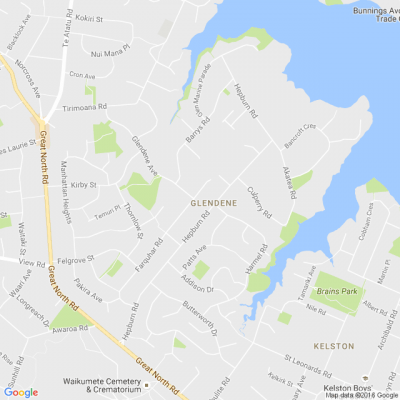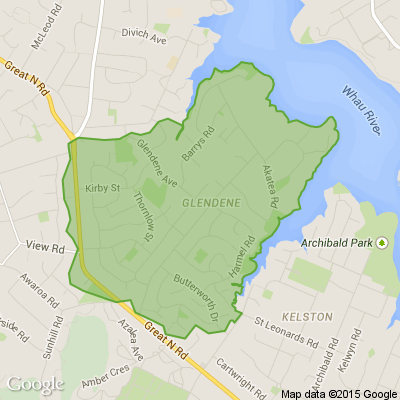Auckland's city centre is losing an average of $850,000 per day as 70,000 students continue distance learning and an estimated 42,000 workers log in from home.
Auckland CBD retailers say trade in the city has been picking up slowly as workers trickle back to work in downtown offices. But they're picking profit margins to remain low as students study from home and international visitors are shut out. Heart of the City estimates that about 140,000 people typically worked in Auckland's CBD before Covid-19 struck. During lockdown, Auckland's empty city centre lost about $5 million per day. While more than half of the workers are now back at the office, the prolonged absence of university students is having a big impact, says Viv Beck, Heart of the City's chief executive. "The student population is very important to the city centre economy, and I think there will be a range of businesses that will be noticing their absence," Beck told.
Foot traffic and retail trade in Auckland city centre is down between 20 and 30 per cent compared to this time last year. Trade had been improving week by week, and Commercial Bay had provided a much needed boost in visitors, but Beck said the city centre needed students to return to their university campuses and more workers to their offices to ensure a quick economic recovery. International visitors accounted for approximately 19 per cent of all spending in Auckland city centre last year. Without them, the city centre is looking to domestic tourism - including visitors from outside of Auckland - for a much-needed boost. Beck says retailers are looking to use events and attractions to encourage Aucklanders to come into the city. "We're definitely noticing people are interested in coming in for weekends, to stay here and do a whole variety of things, and we're promoting a variety of offers. We've got Restaurant Month coming up - it's really thinking about [leveraging] things that make the city unique that draw people in. "We certainly looking to attract more people from around the country and, Aucklanders, if they can't travel, there's opportunities for them to come into the city centre and do things that they might not have in their own local locations," Beck said. "We're very actively trying to make sure we get our core customers back and that we attract new ones, and that we do things that are vibrant and interesting to give people reason to come." The opening of the downtown retail district Commercial Bay earlier this month had attracted more people back to the city. It drew more than 250,000 visitors in its first week, beating expectations.
Auckland Art Gallery was also ahead on sales figures after reopening post-lockdown, Beck said. Auckland's High Street is one of Auckland CBD's once-busy streets facing reduced foot traffic and spending. The manager of one High St clothing retailer, who wished to remain anonymous, told trade in the boutique was down about 40 per cent. He said High St today was a stark contrast to what it was earlier in the year. "There are a lot fewer tourists - that's the big thing, and what High St is usually full of, and definitely a lot fewer workers as well - they don't really want to hang out or spend time lounging around anymore, which is a big difference to what we're used to."
The shop attendant said foot traffic on High St was about half of what it was. "There was a bit of a spark when Commercial Bay opened up and the weather was really nice - that was a really good time for us but it quickly turned around again. It was a spark of hope, and then it died," he said. "Over the last couple of weeks there has been a lot of talk about people coming back to work but I'd say working from home is going to be the new norm, so that's not the greatest [reality] for places like High St." The man said that like many stores on High St, he was holding on to hope that a transtasman bubble would begin soon. About 60 per cent of the store's business was from international visitor, he said. Organised tours of cruise ship passengers typically arrived every couple of days, he said. Retail analyst Chris Wilkinson said a handful of High St retailers had relocated to Commercial Bay but its scale meant that it had been competing with other areas of the city for foot traffic. "It's only natural that there will be a temporary displacement for a while, people will be going into that area to discover the new stores and hospitality environment," Wilkinson said. Commercial Bay would become "self-sustaining" once the new PwC office tower opened next month and 10,000 workers moved in, Wilkinson said. "At the moment it's really relying on pulling people from other areas." Unlike many analysts, Ben Goodale, chief executive of retail marketing agency Quantum Jump, believes trading levels and shopper numbers will recover and return to what they were. He doesn't believe today's level of consumer activity is the new normal. "It's a short-term problem," Goodale said, it's "the perfect storm". "You've got no tourists, no overseas students, companies who are being slow to return to the office, everywhere you go in central Auckland the roads are being dug up so it's a nightmare to get around, the Council have also taken away lots of on-street parking which mean grab-and-go shoppers find it really hard, and a lot of people are still nervous about public transport, there's also a bit of a Covid hangover going on about how people feel about the mismanagement of our border controls in the last week - it doesn't exactly boost consumer confidence. "All of that will shake down and it will return to normal, it's just that for all of that to return to normal we are looking at next year." Goodale said malls, with their ample parking, would likely have recovered more quickly than city centres. "Retail, generally, is going really well, alot of CEOs of retailers I'm talking to are reporting that sales are good, and in some cases, they are seeing year-on-year sales growth. "Retail has definitely bounced back," he said. "It has been performing much better than a lot of analysts have suggested it would." "There's no silver bullet here except the time it takes for those audiences to come back. "If you're in the city and you sell goods focused on tourists, you're not going to be selling much for the next six months, and there's nothing you can do about that." Some retailers were likely to temporarily downsize for the rest of the year. "It is tough, especially for independent retailers, but there's no easy solution unless they can change the business model."
Goodale said Auckland city centre's daily drop in trade of about 20 per cent was not a bad result. "We're only two weeks on from level 1 and outside the CBD a lot of retailers are trading over and above what they did last year.
"We're in amidst a global pandemic and New Zealand has actually been coping with it well - businesses have managed to transit somewhat through it and now we're at a level where we're able to freely trade internally."
Retail NZ chief executive Greg Harford said suburban retailing, and malls, were having a "slightly easier time" than city centre operators.
Does New Zealand have too many shops?
==================================
New Zealand has more than 27,000 retail businesses - and some-37,000 shops - but will there be enough spending to sustain them all? Harford doesn't think so. Approximately 6700 retail businesses are at risk of closure over the rest of this year and as many as 17,000 could eventully shut up shop as a result of Covid-19, according to the latest Retail Radar report. Just 10,000 retail businesses are understood to be in a stable financial position.
The retail sector is beginning to undergo a period of consolidation as executives assess the viability of keeping certain stores in their network open. South Island department store group H&J Smith has announced it will close some of its stores, following similar moves by Bunnings, Smiths City, Michael Hill, The Warehouse, Max Fashions and Ingrid Starnes. "We will see the number of physical stores decline over the coming couple of years and we've seen lots of closures be announced already over the last few weeks and we'll certainly see consolidation of store footprints." The sector is expected to shed 15 per cent of its jobs over the next 12 months, the equivalent of about 60,000 roles. Harford just how many shops would close depended on just how deep New Zealand's recession would be.
========================================================
🎉The Riddler wants to hear from you 🫵
🧩 Got a riddle that can stump your Neighbourly community? Share your brain teasers with us and watch your neighbours scratch their heads 😕🤔❓
Send us your tricky puzzles!

Suspicious Guy
Keep an eye on this guy, pretended to read the water meter, then wandered up the drive crowbar in hand when I asked what he wanted he said power and is there a dog.We have smart meters. He opened my neighbours gate (we are 3 units) and went in the back of her place with his crowbar. My son went round there and he took off. Police informed.










 Loading…
Loading…